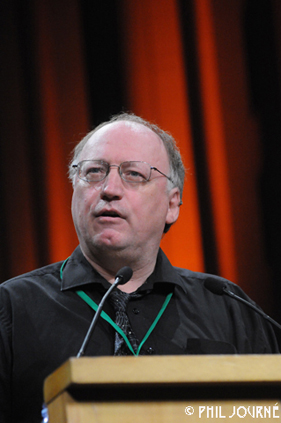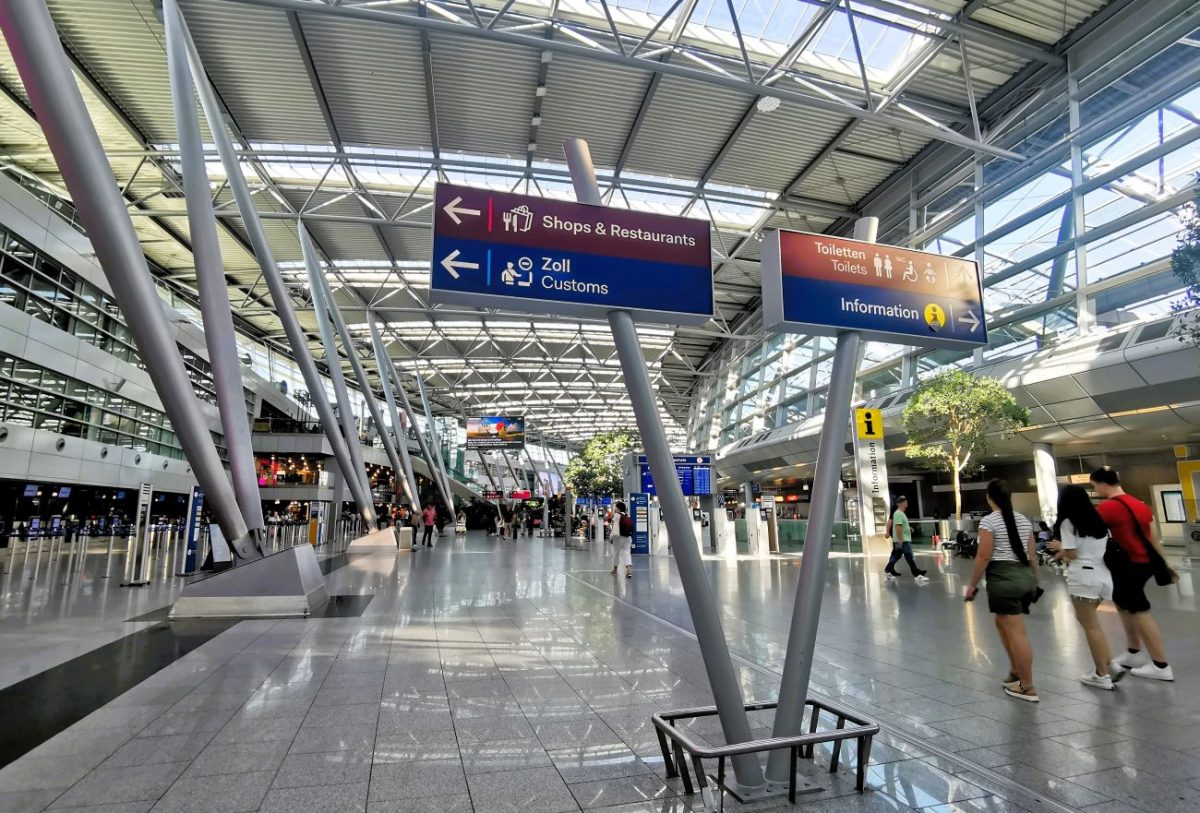Transforming our World – insights into the coming revolution by Felix Dodds

"A revolution is coming whether we will it or not. We can affect its character; we cannot alter its inevitability." (Robert Kennedy)
We have been on a long journey from the first UN conference on Human Environment held in 1972 to the adoption on the 25-27th of September 2015 of the Sustainable Development Goals. Let me share with you some of the moments in the 43 years. Writes Felix Dodds
From Stockholm to Rio 1992
The stage for the Environmental Conference in Stockholm was set by three (influential, extraordinary, path-setting) reports. The first was the Club of Rome, Limits to Growth (Meadows et al., 1972) It tracked five variables – world population, industrialization, pollution; food production, and resource depletion – and found the trends for each of them leading rapidly to a point of environmental, economic or social collapse. The report was perhaps ahead of its time and caused widespread controversy. In 2008 a review of the predictions was undertaken and found to be very close to what has happened.
On the last day in Stockholm in 1972 Maurice Strong the Secretary General of the Stockholm conference on Human Settlement could feel very pleased with what had been achieved.
The conference had agreed to set up a UN body on the Environment which would be called the UN Environment Programme and it would be the first UN Agency or Programme to be hosted in a developing country – Kenya.
Stockholm called for a Convention on the Prevention of Marine Pollution by Dumping of Wastes and Other Matter. By the end of 1972 a draft was completed, and the convention came into force in 1975 when 15 countries had ratifed it. The Conference also called for a moratorium on whaling. The International Whaling Commission was scheduled to meet immediately after Stockholm, and conference Secretary-General Maurice Strong travelled and addressed the Commission, uninvited, and succeeded in getting it to agree to a limited moratorium.
UNEP played a critical role in the next twenty years in helping to develop international regulation. Stockholm also highlighted the issue of ozone depleting chemicals as dangerous. When the British Antarctic Survey found a hole in the Ozone Layer UNEP facilitated a new convention and protocol to end the use of ozone depleting chemicals.
At the 10 year review of Stockholm in 1982 it was agreed that development and environment should be brought together and a Commission under the Norwegian Prime Minister Gro Harlem Bundtland worked in the 1980s to help set the scene for a new ‘Earth Summit’ held in Rio in 1992 under the leadership again of Maurice Strong.
The Earth Summit event agreed two multilateral environmental agreements: the Conventions on Climate Change and Biological Diversity. Delegates in Rio agreed to negotiate additional MEAs: the UN Convention to Combat Desertification and the Straddling Fish Stocks Agreement. Agenda 21 – the blueprint for creating a sustainable planet in the 21st century – with 40 chapters covering the main challenges facing our ability to live sustainably on the planet – was negotiated specifically for the Summit. In addition, the Rio Declaration – a set of 27 principles that have found their way into domestic law in many countries – and the Forestry Principles – an attempt to guide us all to manage the decreasing forests in a more sustainable way – were adopted. And, the UN Commission on Sustainable Development was created to track implementation of the Rio agreements. Finally, the Rio Earth Summit created a role for stakeholders in developing policy and implementing the agreements.
After promising to fund Agenda 21 implementation to the tune of $625 billion a year of which $125 billion was from developed to developing countries… focus moved to securing the democratisation of eastern Europe and coping with the black Monday financial crisis and the aftermath of the first Gulf War.
Understanding the problems had not been addressed. Governments prepared for the ten year review of Rio in 2002 only to see their hopes smashed by 9/11 as governments focused on the aftermath of that world-changing event, and not the long term viability of our presence on this planet.
Prior to 2002 governments had agreed to 8 Millennium development Goals to help developing countries in key areas of addressing extreme poverty in its many dimensions-income poverty, hunger, disease, lack of adequate shelter, and exclusion-while promoting gender equality, education, and environmental sustainability. Most of these goals dealt with the symptoms and not the causes of the problems.
In 2006 President Mbeki of South Africa declared the 2002 Summit outcomes on sustainable development dead.
In September 2007, Brazilian President Luiz Inacio Lula da Silva, speaking at the UN General Assembly picked up the baton and proposed a new Earth Summit saying:
"If we want to salvage our common heritage, a new and more balanced distribution of wealth is needed, both internationally and within each country. Social equity is our best weapon against the planet’s degradation,"
The aftermath of the Brazilian President’s speech saw (on 4 November 2008), the developing countries table a UN General Assembly resolution calling for a new Earth Summit. This represented the first time that the call for a Summit on sustainable development has come from developing countries.
On 12-13 November 2008, Stakeholder Forum hosted the first workshop on Earth Summit 2012, which identify the green economy, emerging issues, review of previous commitments and institutional reform as the key agenda items. On the 24th of December 2009 governments agreed to that being the agenda for Rio+20
The Challenges
In 2009, it had become clearer to governments and stakeholders that the Summit could have a significant role in reframing the economic debate around a "green new deal." As countries published their recovery packages from the financial crisis, HSBC reviewed them to see how green they were and there were some very heartening results. China’s recovery package was, according to HSBC, 35% green. The European Community’s was 53% and, amazingly, South Korea’s was 83%. At least the discussion on sustainable development was being listened to by the finance and development ministries. It was as if we were now back to addressing the Stockholm Summit’s themes of "Limits to Growth," now knowing more clearly that these limits are not as far in future as we had thought – the most obvious ones being climate change and ecosystem loss.
Added to this was a new discourse emerging around environmental security issues. Our newspapers and media are full of terms such as Energy Security, Climate Security, Food Security, Health Security and Water Security.
Rio+20 and the Sustainable Development Goals
The Rio+20 Conference main outcome had been proposed by the governments of Colombia and Guatemala as the replacement for the MDGs which would end in 2015. It was proposed that after the MDGs there should be Sustainable Development Goals and they should apply to ALL countries and address not just development but sustainable development.
Out of the Rio+20 a process was set up which has culminated in the adoption of 17 Sustainable Development Goals with 169 targets. These will be agreed by Heads of Government on 25-27th of September under the title ‘Transforming Our World: The 2030 Agenda for Sustainable Development’.
This programme is comprehensive and addresses issues as wide as reducing inequality, affordable energy, gender equality and safe cities and communities. With the climate Summit in December this year they offer a real and perhaps last chance for humanity to move onto a sustainable path. Tourism will need to adopt goals and targets like all industry sectors.
What is needed is a revolution according to the UN Secretary General. Perhaps put best though by Robert Kennedy in 1968, when he said: "a revolution is coming, a revolution which will be peaceful if we are wise enough; Compassionate if we care enough; successful if we are fortunate enough— But a revolution is coming whether we will it or not. We can affect its character; we cannot alter its inevitability."
Felix Dodds in a Senior Fellow at the Global Research Institute University of North Carolina, Associate Fellow at the Tellus Institute, Former Executive Director of Stakeholder Forum (92-12) and Chair of the UN Conference on Sustainable Societies Responsive Citizens (2011). He has also edited or written 12 books on sustainable development. With Maurice Strong and Michael Strauss he wrote ‘Only One Earth’. His blog is http://blog.felixdodds.net/
Special offers on sustainable tourism info HERE
Valere
Have your say Cancel reply
Subscribe/Login to Travel Mole Newsletter
Travel Mole Newsletter is a subscriber only travel trade news publication. If you are receiving this message, simply enter your email address to sign in or register if you are not. In order to display the B2B travel content that meets your business needs, we need to know who are and what are your business needs. ITR is free to our subscribers.









































Airlines suspend Madagascar services following unrest and army revolt
TAP Air Portugal to operate 29 flights due to strike on December 11
Qatar Airways offers flexible payment options for European travellers
Air Mauritius reduces frequencies to Europe and Asia for the holiday season
Airbnb eyes a loyalty program but details remain under wraps